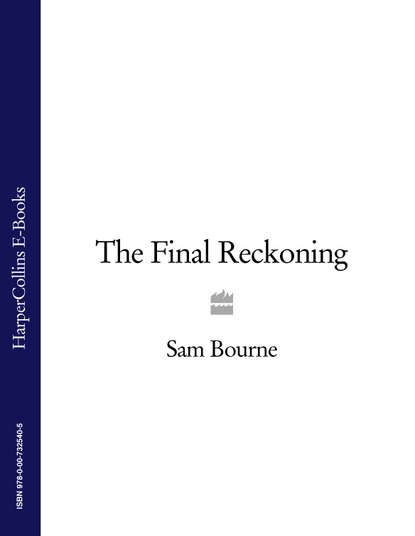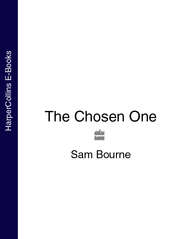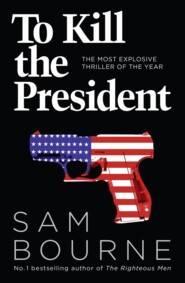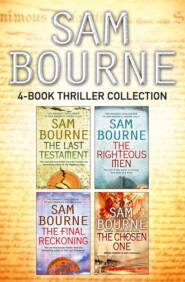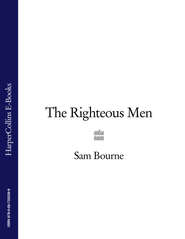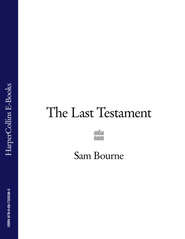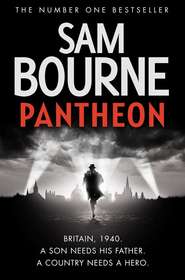По всем вопросам обращайтесь на: info@litportal.ru
(©) 2003-2024.
✖
The Final Reckoning
Настройки чтения
Размер шрифта
Высота строк
Поля
Tom reached into his bag for the sheaf of papers he had brought, the timelines and FBI reports he and Sherrill had got from Allen so that he would be able to maintain at least the pretence of full disclosure. He had seen enough of these cases over the years to know that it was that above all – the lack of openness, the sense that the authorities were concealing the truth – that always enraged the grieving families. He had planned to give Rebecca Merton every detail, show her the precise sequence of events, each split-second decision, until she would, despite her loss, have to concede that it was a tragic but innocent mistake and that the UN security team had been in an impossible position: how could they risk a suicide bomber killing tens, scores of innocents? They had taken one life in the sincere belief that they were saving many more. That was what he needed her to accept.
‘Don't start giving me some presentation, Mr Byrne. I don't want you trying to bury me in papers, blinding me with science. I'm a doctor, I know that trick.’
‘All right.’ Tom put the papers back and leant forward in his chair. ‘Tell me how we can help.’
‘I want an apology.’
‘Of course the United Nations feel the deepest—’
‘Not from you. From the boss. I want a face-to-face meeting with the Secretary-General. I want him to look me in the eye and admit what the United Nations has done. This was not some minor slip-up; this was killing my father. For no reason. And that means a full apology, in person, from the man at the top.’
Tom remembered Henning's sole condition: no grandstanding, no photo-ops. ‘Look, a tragedy happened yesterday. We know that. And the United Nations wants to show that it recognizes the scale of that tragedy. We'd like to make a gesture, to establish a fund available to you for whatever purpose seems appropriate. It could be a memorial—’
‘Sorry, I think I misheard you. What did you say?’ There was a second flash of that crooked smile.
‘I said that the UN is willing to acknowledge the life of Gerald Merton with a one-off payment.’ He immediately regretted one-off.
‘Christ.’ She shook her head, the full lips slowly colouring a deep red, as if her rage was filling them with blood. ‘Maybe the headbangers are right after all. So the UN's not just anti-Israel, it's anti-Semitic as well.’
Tom frowned. ‘I'm sorry?’
‘You'd better be more than sorry, Mr Byrne. Is this really what you think of us? That you can buy us off with blood money?’
‘I don't underst—’
‘You think this is what Jews are like? That we'd let you kill our parents so long as the price is right?’
‘I had no idea—’
‘That's right. You have no idea at all.’
Her mobile rang again. He was trying to digest what she had just said, but as she stood up, all he could focus on was her shape. She was slim, but not skinny. He could see that even in thrown-on jeans and a loose black top, she had the figure not of the anorexic dolls you saw in Manhattan but of a real woman.
‘Hi Nick. How's she doing? How's her chest X-ray look? That's not good.’ She began nodding, murmuring her assent to the voice on the phone. ‘Sounds like she's developing ARDS. That's what I'd worry about with strep, viridans sepsis. All right, tell the parents I'll call them soon. They've been through the wringer: they need to hear a familiar voice. Thanks, Nick.’
He was trying not to stare, but it was an unequal struggle. The intensity of this woman seemed to be burning up all the oxygen in the room. There was a strange butterfly sensation in his chest, as if his heart was trembling. He told himself it was coffee or lack of sleep or jet lag. But still he couldn't look away.
So Gerald Merton was Jewish. Tom had never even considered it. Everything had thrown him off course, the name, the passport – Place of birth: Kaunas, Lithuania – and especially the corpse. Tom Byrne knew what a circumcised penis looked like and Merton's was not it.
She finished the call and turned to him. ‘I have to go: there's an emergency at the hospital.’
‘I'm sorry to hear that.’
‘Yeah, sure you are. Anyway, I don't think we have anything more to talk about, do you?’ She turned around and disappeared into the kitchen, where he could hear the jangle of car keys being scooped up.
He turned to the pile of unused documents next to him on the couch and began pushing them back into his case when he saw it: a small, black notebook on a side table. For a moment he thought it must be his own Moleskine. But as he looked closer he could see it was thicker. It was hers. On impulse, he shoved it into his bag. He would say he'd taken it by mistake: that way he'd have an excuse to come back.
He stood up and followed Rebecca Merton down the stairs and out of her front door.
‘Here's my card,’ he said, successfully repressing his surprise that she took it. ‘If you think of anything more you'd like to discuss, call me.’
She studied it for a moment, then looked back up, those emerald-clear eyes boring into him. ‘So you're not even a UN lawyer. You're the hired help. The guy they brought in to do their dirty work. Goodbye, Mr Byrne. I don't think we'll be seeing each other again.’
CHAPTER ELEVEN (#ulink_cae8e7e5-2f4b-58c5-ad4b-3c4ecc25d87e)
Tom watched her stalk across the road, get into her old-model Saab and drive off, then stood as if paralysed for a minute or more, trying to work out the effect she had had on him. It wasn't the usual feeling, the sensation he would often get at a Manhattan party or during drinks at the Royalton: spotting some young beauty and lazily deciding he wanted her, the way you might pick a delicacy off a menu. That was how he had kept his bed filled in New York, but this was different.
He felt as if he had just run ten kilometres around Central Park. There was a flush in his cheeks; his pulse was elevated. He remembered, abruptly, how he had felt at the age of sixteen when he had first met Kate, four years his senior, a student at the university and the convenor of the Sheffield youth branch of the Campaign for Nuclear Disarmament. Even saying the name – Kate – brought back the glow. She had inducted him into the ways of the world and although he had been with many women since he had never felt that same, palpitating excitement again. But he had to admit to himself, with a tinge of shame, that he was feeling something like it now. For God's sake, he told himself firmly, grow up.
A sudden deep need for coffee prompted him to walk to the top of the street where there was a small parade of shops. Mercifully one was a café. He went in, sat down at the smallest table so that no one would join him and ordered an espresso.
When it arrived he downed it in two gulps, then sat back, closed his eyes and breathed deep. Only then did he remember the book in his bag. Could it be Rebecca Merton's diary? He knew he shouldn't open it, but he couldn't help himself.
The notebook was filled, page after page, with tiny, neat blue handwriting. Instantly he knew these were not the writings of a thirty-something woman. It had been a mistake to pocket it. But he only had to read the first few sentences to realize that he – and not only he – had made a much, much graver mistake.
CHAPTER TWELVE (#ulink_60a6a58f-8d99-502d-835a-ff30d8032fad)
My name is Gershon Matzkin and I was born in Kruk, Lithuania. My British passport says I was born in Kaunas because Kruk is such a small town and no one has heard of it. And also because the name of that place should be cursed a thousand times and it is better that it is never written down.
I was the second of four children of Meir and Rebecca Matzkin. I was different from the others. My sisters had dark hair, their features proud, while I was blond and had blue eyes and a small nose. I did not look like a Jew at all.
My father would joke that maybe my mother had been too friendly with the goatherd in the village. He could joke about such things because he knew they were impossible. These days, they would say that my genes were different, mutant. But then, who knew of such things?
I was born too early. My body was tiny; they said my life was hanging by a thread. When I was eight days old the rabbi said I was too weak to have my brit milah, too weak to be circumcised. Afterwards, because of everything that happened to our family, it was delayed. Maybe my mother did not want to think about it. And after that it was too late.
The little village whose name I do not want to mention did not have many Jews, maybe a few dozen families. We kept ourselves quiet, trying to get by. But every now and then there was trouble …
I was frightened even before it started. At that age – I was perhaps seven years old – the sound of the rain on the windows was enough to scare me. I liked snow, which we had plenty of, but the rattle of raindrops against the glass frightened me: it sounded like fingers, tapping, demanding to be let in. There was no rain that night but it was very dark and that scared me too.
But this night I was not the only one afraid. My sisters too were awake and crying. Local Lithuanians were running through the streets where the few Jews lived, banging on doors, shouting: You killed Christ! Come out, you Christ-killers!
This happened every now and then, especially at Easter. Even then, when I was just a child, I could recognize the slur in their voices. They were drunk, on vodka, no doubt, but also on hatred – the hatred of the Jew fermented by their faith and distilled for nearly two thousand years. I know this now: then I was just scared.
There were more voices than usual. We waited for them to fade as they went past, but they did not. They remained loud and near. My mother sat on the bed with us – all four of us children shared a single bed back then – telling us to hush. She was holding the youngest of my sisters, little Rivvy, cradled in her arms and was singing an old Yiddish melody:
Dos tzigele is geforen handlen Dos vet zein dein beruf Rozinkes mit mandlen Shlof-zhe, Yidele, shlof.
It means:
The little goat went out looking Just as you'll do some day Bringing raisins and almonds Sleep sweet baby sleep.
The men outside were still bellowing, Zhid! Zhid! Jew! Jew! But she carried on singing that song. Shlof-zhe, Yidele, shlof. Sometimes, even now, when I remember everything that happened afterwards, I hear that song again.
At that moment none of us knew what was going on outside. My mother thought my father was downstairs, peering through a gap in the curtains, watching for the moment when the thugs grew bored and moved on. She was partly right: that was why he had gone downstairs, so that he could look and tell us when the coast was clear. But then something had caught his eye. He had seen smoke coming from the barn.
We were not farmers, but like most people in our village we kept a few animals, some chickens and a cow. And now, late at night, my father could see smoke. Surely the men from the village had thrown a torch into the barn. He thought only that he had to rescue the animals. So he ran into the barn.
I don't know when my mother first realized what had happened but she suddenly called out. ‘Meir?’ Then she saw the first orange flames. ‘Meir!’ When there was no reply she threw Rivvy aside as if she were a rag doll and ran down the stairs. We watched from the window as she fled out of the house towards the barn. I was so frightened that I stopped crying.





